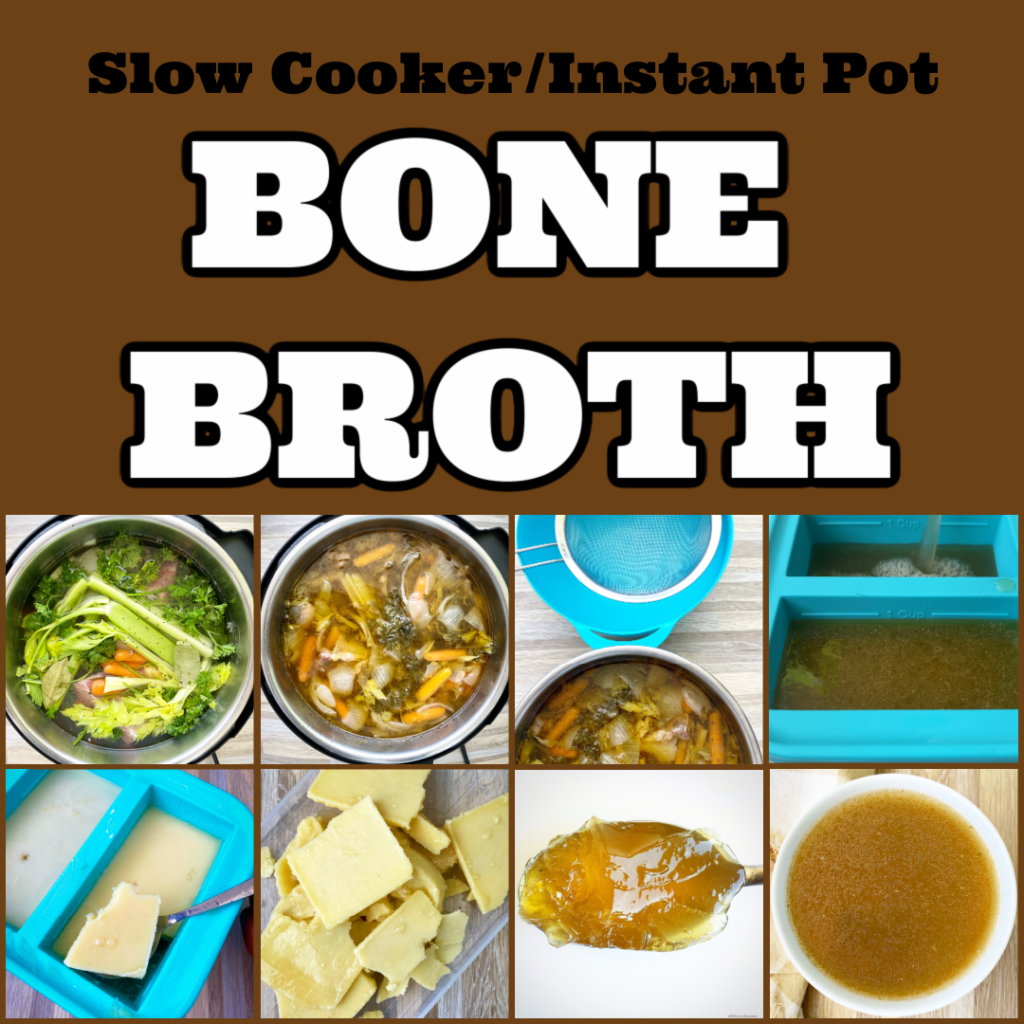If you’re feeling unwell, the right foods can do more than just boost your energy levels. They can aid in your recovery, help you feel better, speed up the healing process, and keep you hydrated. Although it may not be a priority, incorporating these 15 foods into your diet while you’re sick can be very beneficial.
- Chicken Soup:
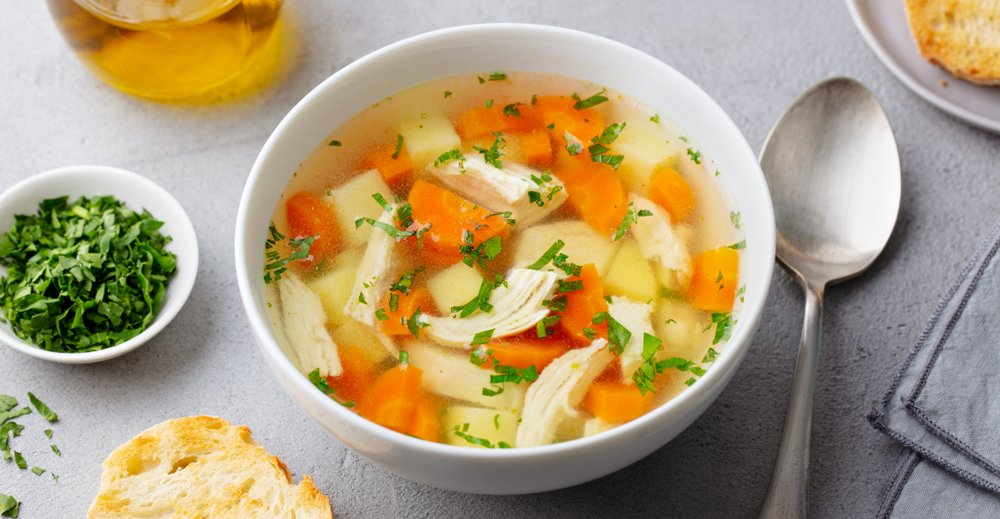
Chicken soup has been a staple food for those who are feeling under the weather for many years, and for good reason. It is a readily available source of essential nutrients like vitamins, minerals, calories, and protein, which your body may require in higher quantities when recovering from an illness. Additionally, chicken soup is also high in fluid and electrolytes, making it ideal for preventing dehydration caused by symptoms such as diarrhoea, vomiting, sweating, or fever.
Moreover, the warmth of the soup can help to reduce nasal congestion, as hot or spicy liquids have been found to be effective in doing so. The chicken in the soup contains the amino acid cysteine, and its derivative, N-acetyl-cysteine, has antiviral, anti-inflammatory, and antioxidant properties that break apart mucus.
Finally, homemade chicken soup made with bone broth is also rich in collagen and other nutrients that can aid in recovery. However, more research is needed to fully support the claim that bone broth has a positive impact on immune health.
HOW TO MAKE CHICKEN SOUP:
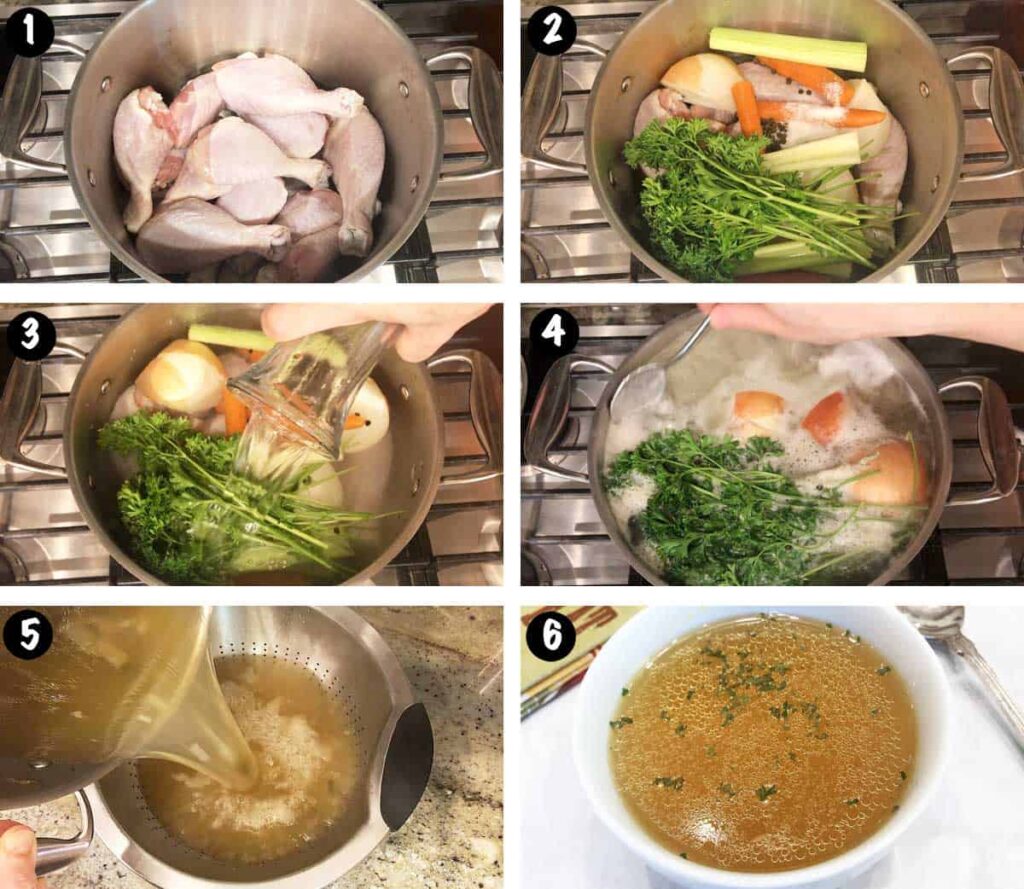
- Broth:
Just like chicken soup, broths are great sources of fluid and electrolytes that can aid in recovery when you’re sick. When consumed hot, they can also provide relief from sinus congestion. They are flavorful and packed with nutrients, yet gentle on the digestive system.
Bone broths, in particular, are abundant in collagen and amino acids derived from animal bones, which could potentially lead to a faster recovery. For this claim to be established, more research is needed.
If you are on a low-sodium diet, it is important to opt for low-sodium or no-salt-added broths when purchasing pre-made broths from the grocery store.
- Garlic:
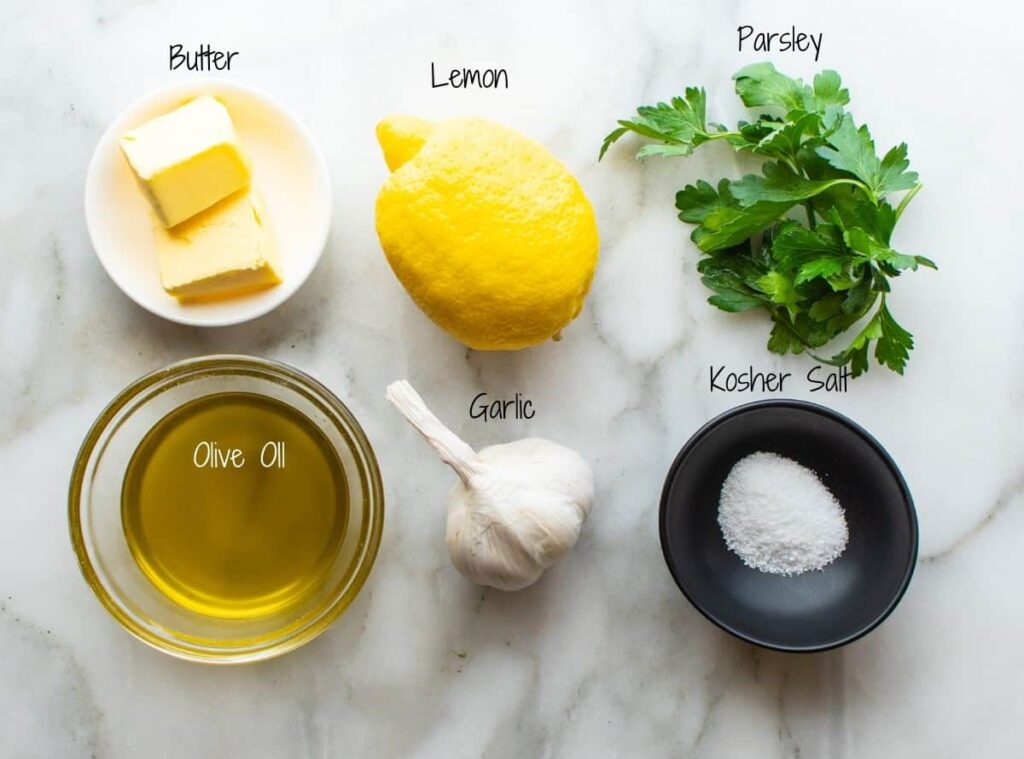
Garlic has numerous health benefits and has been utilized in herbal medicine for centuries. In laboratory and animal studies, it has demonstrated antibacterial, antiviral, and antifungal properties. One study involving 146 individuals found that participants who took a garlic supplement had approximately 70% fewer sick days compared to the placebo group. However, the authors caution that more research is required to confirm that garlic can help prevent illness.
Furthermore, taking aged garlic extract supplements has been shown to boost immune function and reduce the severity of colds and flu. Incorporating garlic into your diet when you’re feeling under the weather can not only enhance the flavour of your food but also make it more effective in combating cold or flu symptoms.
- Coconut Water:
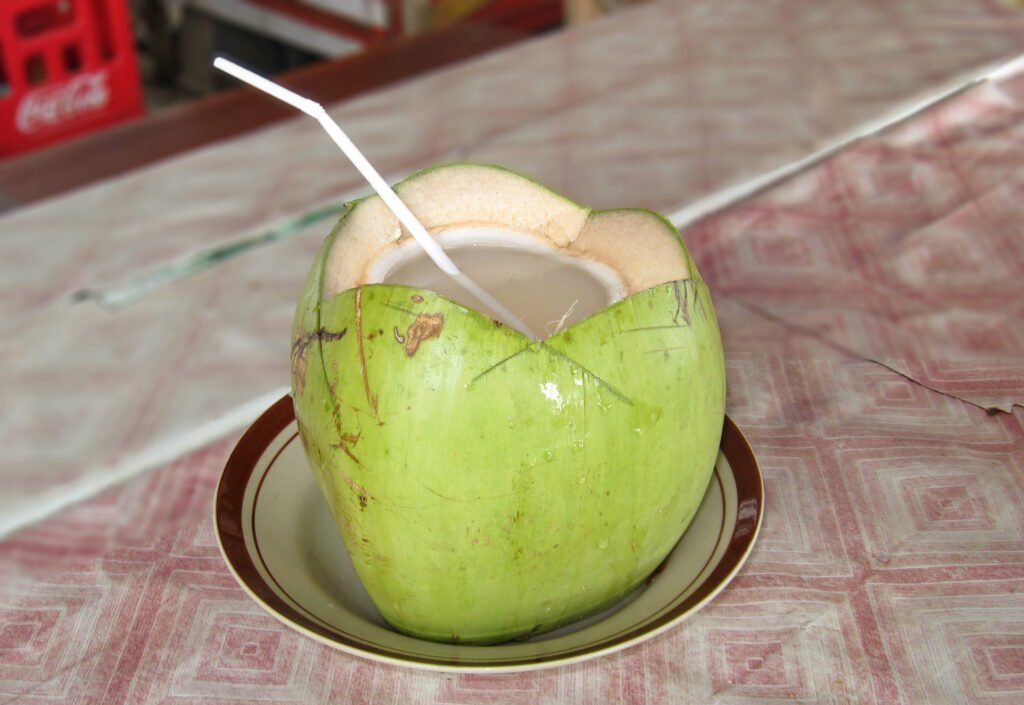
Coconut water is an excellent drink to have when you’re feeling unwell. It contains high levels of electrolytes, which need to be replenished along with fluids if you’re experiencing symptoms such as vomiting, sweating, diarrhoea, or a fever. It also contains a small amount of natural sugar from the fruit, which can provide your body with a quick and easily accessible source of energy.
However, one study found that coconut water can cause more bloating compared to other electrolyte-rich beverages. It is advisable to start slowly if you are new to coconut water to avoid any potential bloating.
- Hot Tea:

Tea is a commonly used remedy for many symptoms associated with colds and flu. Similar to chicken soup, hot tea acts as a natural decongestant. The tea must be hot to help relieve congestion, but it should not be too hot to further irritate the throat.
Despite containing some caffeine, tea does not appear to cause dehydration or increase water loss. This makes drinking tea throughout the day an excellent way to stay hydrated while reducing congestion.
Tea also contains polyphenols, which are natural substances found in plants and have a wide range of potential health benefits, including antioxidant and anti-inflammatory properties and even potential anticancer effects.
- Honey:

Honey has antibacterial properties and is sometimes used as an antiseptic dressing for cuts or burns. Honey may also boost the immune system, although there is currently no research to support this use.
Some people also use local raw honey to relieve seasonal allergies, but there is no evidence to support this use. Honey can also help suppress coughing in children, although it should not be given to children under 12 months old due to the risk of contamination with bacteria that can cause botulism.
- Ginger:
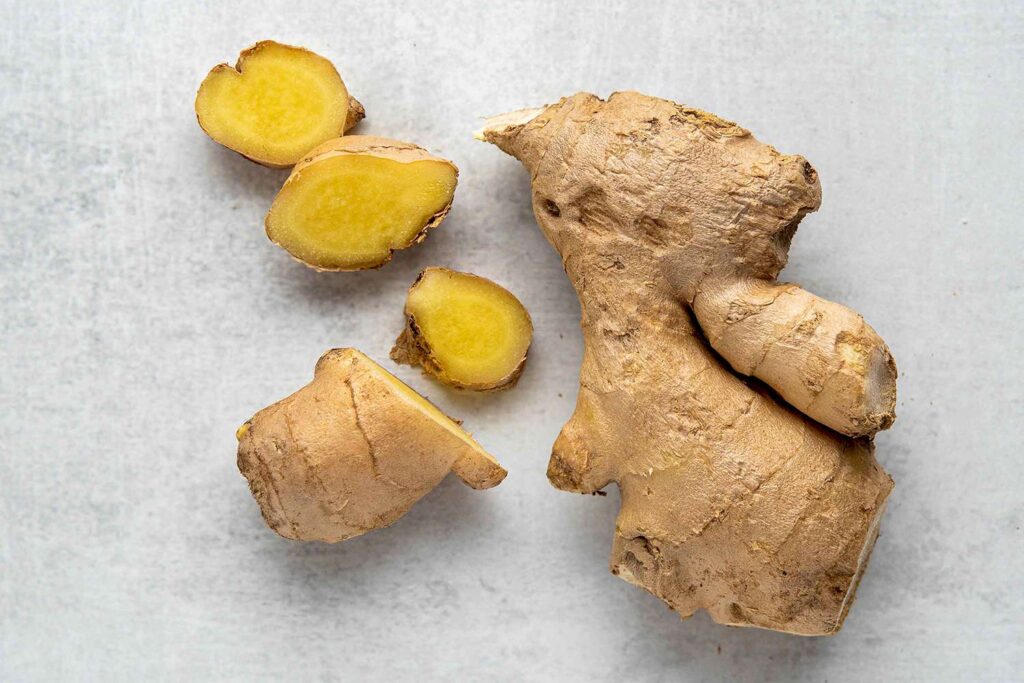
Ginger is a versatile ingredient in both food and medicine, widely used for its anti-nausea properties. Scientific studies have demonstrated its efficacy in relieving nausea caused by pregnancy and cancer treatment.
If you’re feeling nauseous or vomiting, ginger can be an effective and natural remedy to alleviate these symptoms.
You can incorporate fresh ginger in your cooking, make ginger tea, or opt for ginger ale that contains real ginger extract or ginger flavour, not just its imitation. Ensure you choose a product that contains genuine ginger to experience its benefits.
- Spicy Foods:
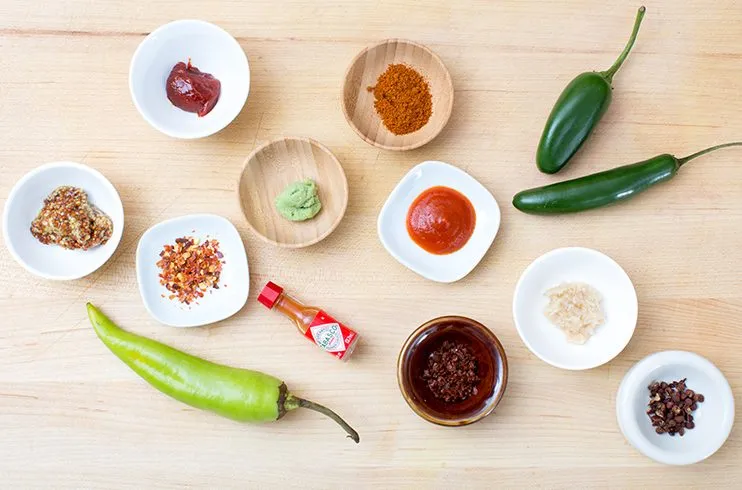
Capsaicin, a compound found in spicy foods such as chilli peppers, creates a hot and burning sensation when in contact with the skin. It has been utilized in topical pain-relieving products, including gels and patches, due to its desensitizing properties.
While the effect of capsaicin on sinus congestion has yet to be fully explored by scientific studies, some people claim that consuming spicy food leads to a runny nose and clears the sinus passages. Evidence suggests that capsaicin thins mucus, making it easier to expel. Nasal sprays containing capsaicin have reportedly been effective in relieving congestion and itching.
However, it’s important to avoid spicy foods if you’re experiencing an upset stomach, as they may cause bloating, pain, and nausea in some individuals.
- Yoghurt:

Yoghurt is a food that contains probiotics, which are beneficial bacteria that have a positive impact on health when they colonize the gut. Several studies have demonstrated the potential benefits of probiotics in reducing the frequency and severity of colds, shortening the duration of illness, and reducing the need for antibiotics.
While yoghurt is a great source of probiotics, it may not be suitable for everyone, particularly for those who experience an increase in mucus secretion from dairy products. For such individuals, alternative options, such as fermented foods containing probiotics like kombucha, or probiotic supplements, may be more beneficial.
- Bananas:

Bananas are a nutritious food option when you’re feeling ill. They contain essential nutrients and fast-acting carbohydrates, which can provide energy to the body. The high potassium content of bananas helps replenish your electrolyte stores, as potassium is an important electrolyte that your body needs.
Additionally, bananas are a good source of soluble fibre. This type of fibre turns into a gel when combined with liquid, making it effective in reducing diarrhoea by limiting the amount of free water in your digestive system.
When you are unwell, taking adequate rest, keeping hydrated and ensuring a nutritious diet is crucial for quick recovery. In addition to fulfilling your nutrient needs, certain foods can provide additional benefits and support your immune system. Although no food can single-handedly cure an illness, incorporating the right foods in your diet may alleviate specific symptoms and aid in the healing process.


